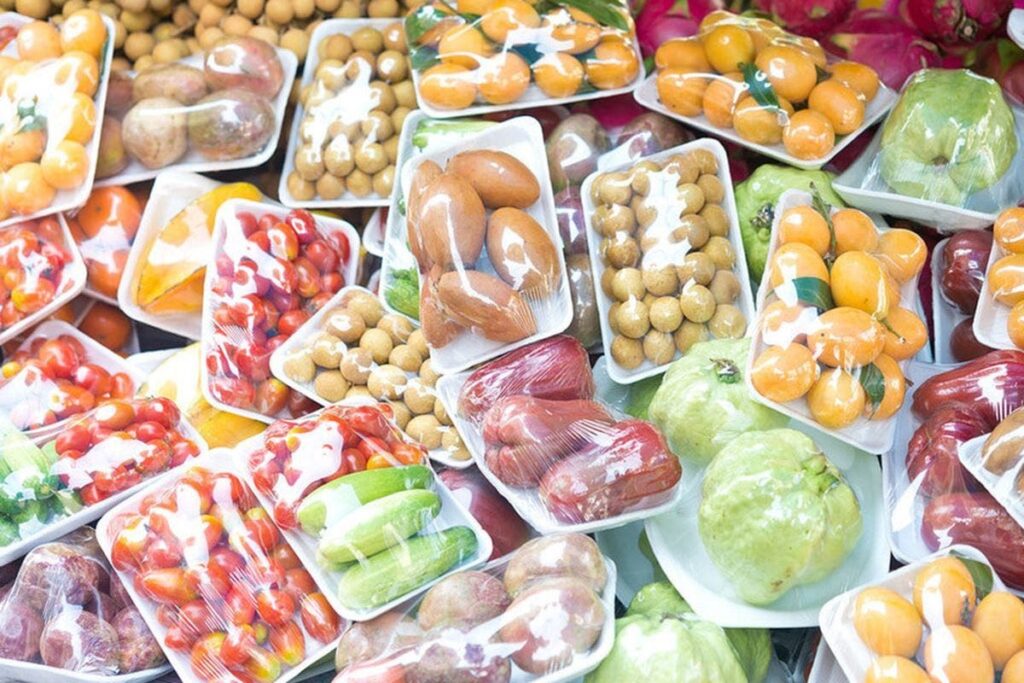Research by sustainability charity Wrap debunks the idea that single-use plastic in foods such as fruit and vegetables helps prevent waste.
Supermarkets should stop selling fresh produce like apples and potatoes in plastic packaging, the research suggests, as it doesn’t make them last longer and increases pollution and food waste.
The 18-month study by sustainability charity Wrap, which also looked at sales of bananas, broccoli and cucumbers, debunks the idea that single-use plastic wrap helps prevent waste.
Instead, these packages often force people to buy more than they need, compounding the problem of food waste.
Marcus Gover, CEO of Wrap, said that while packaging is important and often plays a critical role in food protection, his research found that plastic wrap “doesn’t necessarily extend the shelf life of fresh produce without cutting “, adding: “It may actually increase food waste in this case.
Britons throw away almost half a million tonnes of fresh vegetables and salads and a quarter of a million tonnes of fresh fruit, worth a total of £2.1billion, every year because they are mushy or moldy, or because the label date has expired. This waste is bad for the planet: around a third of the UK’s greenhouse gas emissions are associated with food and drink.
In the fight against food waste, packaging was found to be less important than other factors, such as allowing people to buy the right amount or how it was stored.
“We found that storing food in the fridge at minus five degrees gave days, weeks and, in the case of apples, months of improved quality of life for produce,” Gover said. “We found that for most items, the plastic packaging they were sold in made little or no difference to their shelf life.
“In cases where consumers had no choice but to buy more than they needed in prepackaged packages, this could increase food waste,” he added.
Contents
Wrap studied the five foods: apples, bananas, broccoli, cucumbers and potatoes, stored in their original packaging and in bulk, and at different temperatures.
She calculated that if these five products were sold individually and expiry dates were removed, more than 10,300 tonnes of plastic and around 100,000 tonnes of food could be avoided each year, the equivalent of 14 million baskets of food purchased.
Food waste was avoided because people bought the right amount and used their judgement, rather than date labels, to decide if the food was still good. One in 10 people throw away their purchases by date, resulting in throwing away good food.
La mayoría de los supermarkets ya venden algunos de estos artículos sueltos, pero Wrap, cuyo trabajo ayuda a dar formed a la política gubernamental en materia de sostenibilidad, dijo que su investigación presentó pruebas convincentes de que se vende una más amplia de fruits y verduras in this way.
As people grappled with rising fuel and food prices, there were compelling economic and environmental arguments to point to changes in supermarket aisles, Gover said, and retailers should step up and act on the Wrap’s findings. “It helps save the planet and saves us money at the same time,” he said.
Wrap admitted it would take time for things to change and will now consult with the Food Standards Agency, Defra and the food industry to make bulk produce in supermarkets a reality by 2025.
By Zoe Wood. Articles in English
